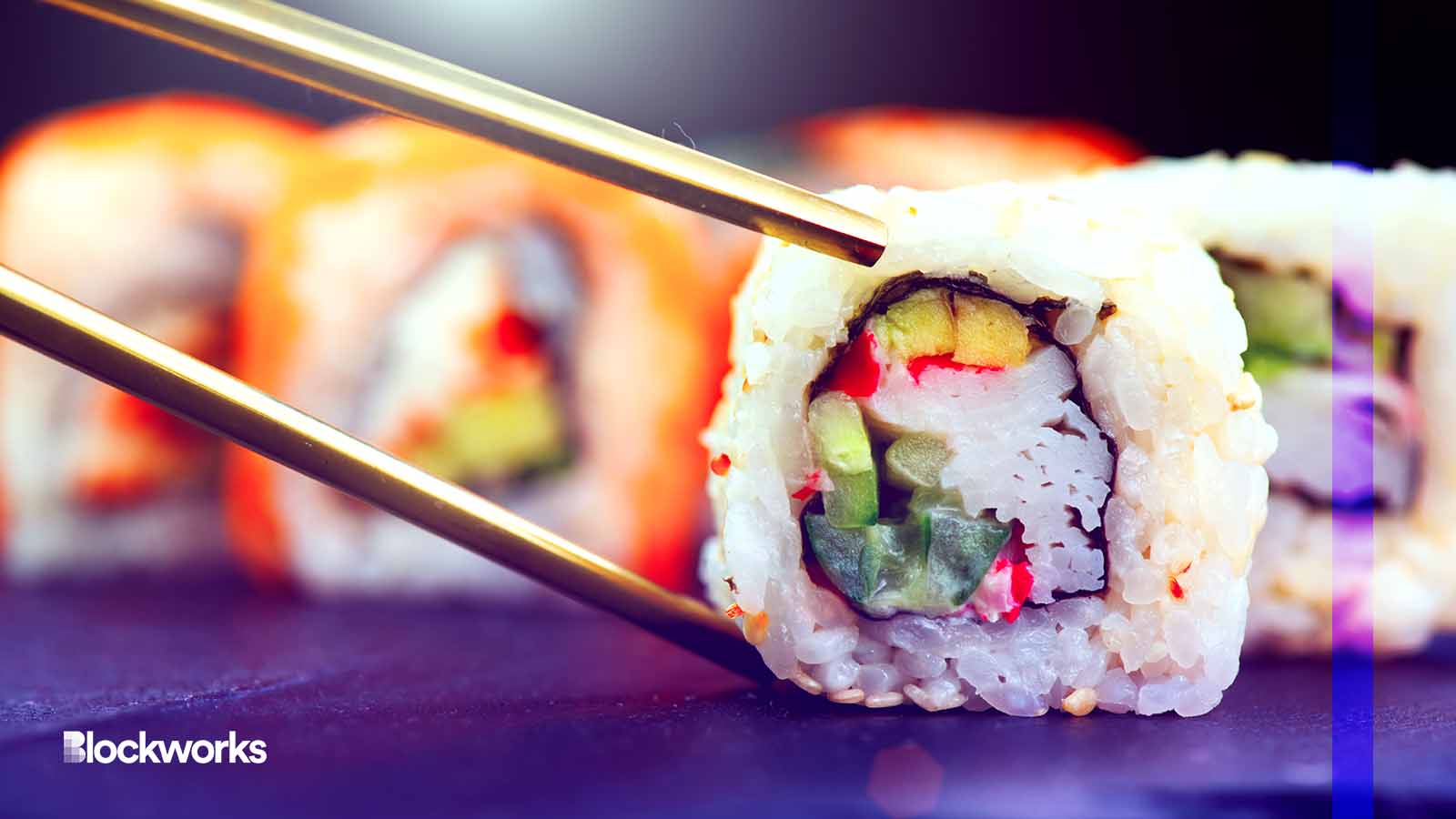Some Funds Stolen in SushiSwap Exploit Recovered, but Blackhat Hackers Have the Rest
Funds recovered by whitehat security teams to be returned to users while others have been lost to blackhat hackers

Subbotina Anna/Shutterstock modified by Blockworks
SushiSwap is now safe to use after attackers drained more than $3 million last weekend, the blockchain protocol said Wednesday. It is now preparing to return some of the stolen funds to affected users, though not all are expected to recoup their losses quickly.
Exploiters found an approval bug in SushiSwap’s Route Processor 2 last weekend, taking roughly $3.3 million from the smart contract.
The majority of addresses that approved SushiSwap’s problematic smart contract were on Arbitrum and Polygon. The contract had been deployed on Arbitrum a few weeks ago for testing.
As part of the exploit, funds got swept by whitehat security teams while some were lost to blackhat hackers, the SushiSwap team said in a tweet. Those who haven’t used SushiSwap in the past 10 days were likely not impacted.
The company said that user funds in the whitehat contract are safe and will be claimable shortly through a Merkle Claim contract and website the protocol is building.
SushiSwap users whose funds are not in the whitehat contract must contact the protocol and share the transaction ID and blockchain data for the lost funds.
“Blackhat funds will take longer to process, as the team will have to manually verify the legitimacy against on-chain data that validates the claim and then pay it out accordingly,” SushiSwap tweeted.
The SushiSwap hack came after the number of crypto attacks spiked during the year’s first quarter, according to a report by Web3 security platform Immunefi.
Various DeFi protocols that have become victims to such exploits have been able to successfully recover some or all of their stolen funds in recent months.
Scammers often try to trick DeFi users into granting them access to their funds — a method services such as Revok.cash seek to combat. Blockchain security firm PeckShield had urged SushiSwap users who had approved the relevant smart contract to immediately revoke its approval.
Get the news in your inbox. Explore Blockworks newsletters:
- The Breakdown: Decoding crypto and the markets. Daily.
- 0xResearch: Alpha in your inbox. Think like an analyst.






